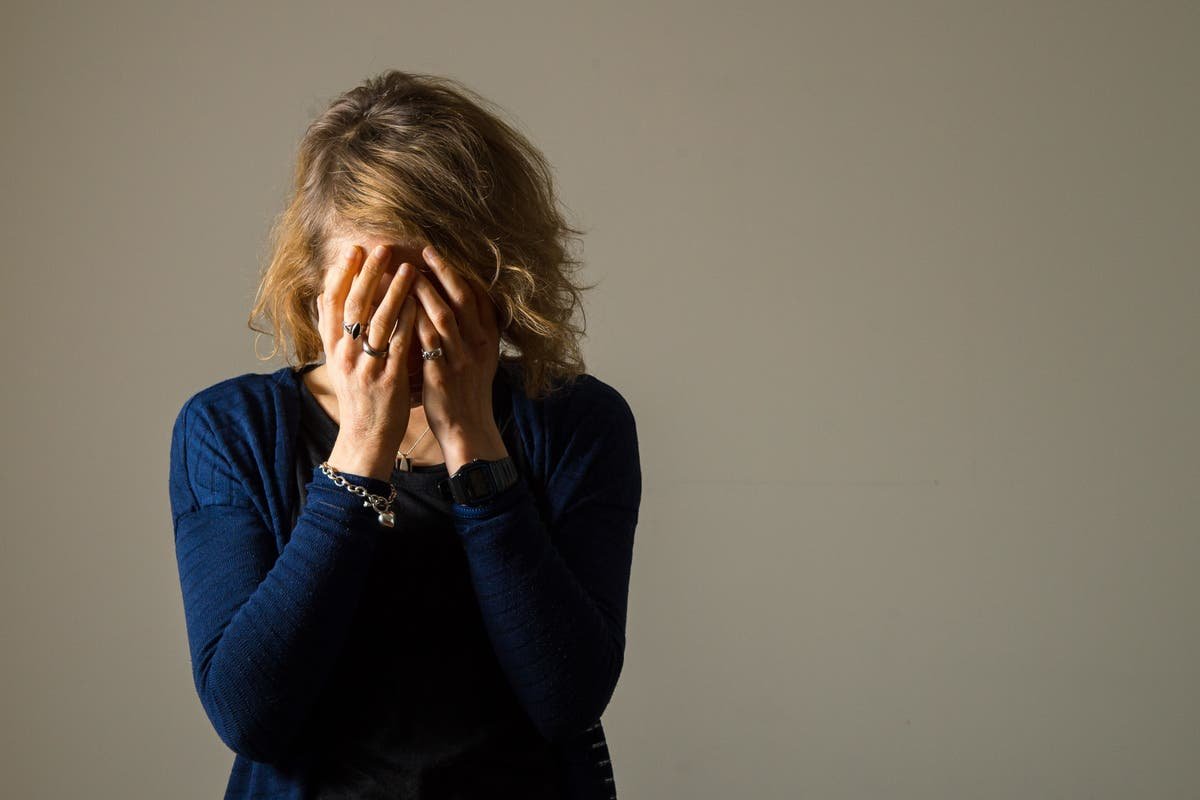
Women being trapped in relationships due to economic abuse, charity finds

Your support helps us to tell the story
From reproductive rights to climate change to Big Tech, The Independent is on the ground when the story is developing. Whether it’s investigating the financials of Elon Musk’s pro-Trump PAC or producing our latest documentary, ‘The A Word’, which shines a light on the American women fighting for reproductive rights, we know how important it is to parse out the facts from the messaging.
At such a critical moment in US history, we need reporters on the ground. Your donation allows us to keep sending journalists to speak to both sides of the story.
The Independent is trusted by Americans across the entire political spectrum. And unlike many other quality news outlets, we choose not to lock Americans out of our reporting and analysis with paywalls. We believe quality journalism should be available to everyone, paid for by those who can afford it.
Your support makes all the difference.
Nearly one in seven (15%) women say they have recently experienced economic abuse from a current or former partner, a charity has found.
Of those women who had experienced economic abuse, nearly a quarter (23%) said that it had prevented them from leaving the relationship – which could equate to around one million women if the findings were projected across the UK according to calculations by Ipsos.
Economic abuse is a form of domestic abuse, involving someone’s finances being controlled by another person.
For those who manage to escape, the abuser often leaves them drowning in debt and homeless
Sam Smethers, Surviving Economic Abuse
Perpetrators may trap people in a relationship with them by controlling their access to cash and creating financial instability that makes leaving harder.
The research, commissioned by charity Surviving Economic Abuse, found that, among the women who said they had experienced economic abuse in the past 12 months, over a third (36%) experienced mental ill health, including depression, panic attacks, or suicidal thoughts.
Nearly a fifth (19%) needed to borrow money to cover the cost of essential items or bills and one in nine (11%) had ended up without a home.
More than 2,800 women across the UK were surveyed by Ipsos, representing the population generally, including just over 430 who said they had experienced economic abuse in the past 12 months.
The survey was carried out in October and November.
Economic abuse happens alongside other forms of domestic abuse. Over a quarter (27%) of women who experienced economic abuse also said that a partner or ex-partner had threatened to hurt or kill them.
The charity quoted one woman who had been with her partner for over a decade before separating.
To be so completely powerless. I can’t explain what it’s like, it’s overwhelming
Woman who separated from her partner
She said: “He made constant threats to harm me and my kids. I was living in fear all the time.
“It’s really difficult to describe. To be so completely powerless. I can’t explain what it’s like, it’s overwhelming.
“You start to go through periods of depression. Not being able to provide for your children, relying on someone else. Even buying stuff like sanitary towels or things like food.
“Now I’m barely surviving. I lost my house and have since had to move over 30 times.”
Sam Smethers, interim chief executive of Surviving Economic Abuse, said: “Time and time again, we hear from victim-survivors who are living in fear for their lives yet don’t have control over their bank account or enough money for a train ticket to flee.
“While for those who manage to escape, the abuser often leaves them drowning in debt and homeless, making it impossible for them to rebuild their lives and provide for their children.
“This Economic Abuse Awareness Day (November 26), we want every victim-survivor to know that you are not alone, there is help out there. That’s why we’re raising awareness of how to spot the signs of economic abuse and access help so whoever you speak to, you get a good response.”
Robin Bulloch, chief executive officer, TSB, which operates an emergency flee fund, said that it had helped nearly 450 customers to leave their situation over the past two years.
I would encourage all employers to play their part in helping combat this social and economic crisis
Robin Bulloch, TSB
TSB’s “flee fund” provides up to £500 to domestic and economic abuse victims in crisis and is available in branch and via video banking.
Of the 445 customers given emergency payments since December 2022, 406 were female claimants and 208 people were fleeing with children.
Several banks, including TSB, offer “safe spaces” in branches for survivors of domestic abuse.
Mr Bulloch said: “The feedback from TSB colleagues providing this support demonstrates that this is a crucial initiative, and I would encourage all employers to play their part in helping combat this social and economic crisis.”
Surviving Economic Abuse has highlighted some of the signs to look out for when someone is experiencing economic abuse:
1. Are they short of money or unable to buy inexpensive items even if they work?
2. Have they asked to borrow money to pay bills or for essential items?
3. Do they say their partner deals with all money matters? Are their wages or benefits paid directly into their partner’s account?
4. Are they counting the pennies, or seeking their partner’s permission before making any purchases?
5. Have they left their work when they liked their job? Do they make excuses to not join friends for coffee and meals out?
7. Do they wear ill-fitting or worn-out clothing? Do they not have the money to get their hair done or buy personal items?
The charity said people can support their loved ones by providing practical help such as a spare room or essential items such as food, clothing or toiletries.
It also suggests that people have information about domestic abuse support services to hand, such as the National Domestic Abuse Helpline on 0808 2000 247, run by Refuge.







